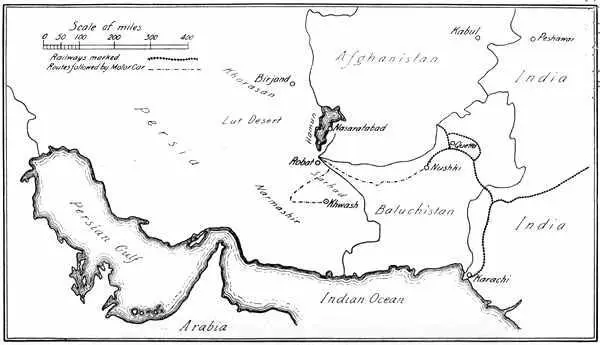Reginald Dyer - Raiders of the Sarhad
Здесь есть возможность читать онлайн «Reginald Dyer - Raiders of the Sarhad» — ознакомительный отрывок электронной книги совершенно бесплатно, а после прочтения отрывка купить полную версию. В некоторых случаях можно слушать аудио, скачать через торрент в формате fb2 и присутствует краткое содержание. Жанр: foreign_antique, foreign_prose, на английском языке. Описание произведения, (предисловие) а так же отзывы посетителей доступны на портале библиотеки ЛибКат.
- Название:Raiders of the Sarhad
- Автор:
- Жанр:
- Год:неизвестен
- ISBN:нет данных
- Рейтинг книги:4 / 5. Голосов: 1
-
Избранное:Добавить в избранное
- Отзывы:
-
Ваша оценка:
- 80
- 1
- 2
- 3
- 4
- 5
Raiders of the Sarhad: краткое содержание, описание и аннотация
Предлагаем к чтению аннотацию, описание, краткое содержание или предисловие (зависит от того, что написал сам автор книги «Raiders of the Sarhad»). Если вы не нашли необходимую информацию о книге — напишите в комментариях, мы постараемся отыскать её.
Raiders of the Sarhad — читать онлайн ознакомительный отрывок
Ниже представлен текст книги, разбитый по страницам. Система сохранения места последней прочитанной страницы, позволяет с удобством читать онлайн бесплатно книгу «Raiders of the Sarhad», без необходимости каждый раз заново искать на чём Вы остановились. Поставьте закладку, и сможете в любой момент перейти на страницу, на которой закончили чтение.
Интервал:
Закладка:
Reginald Edward Harry Dyer
Raiders of the Sarhad / Being an Account of the Campaign of Arms and Bluff Against the Brigands of the Persian-Baluchi Border during the Great War
PREFACE
With the greatest diffidence I have at last made up my mind to write the story of my small campaign with the Sarhad Raiders in 1916.
This campaign sinks into utter insignificance when compared with the great deeds done in other theatres of war by men who said nothing about them. But, insignificant as it was, it forms part of the mosaic of the Great War, and for this reason may be of some general interest.
I take this opportunity of paying a tribute to all the officers who took part in this little campaign. Their untiring devotion to duty, and their efforts to do their utmost under conditions that were often more than trying, accounts for its success.
I would like, in particular, to mention Major Landon of the 35th Scinde Horse, whose great knowledge of the people and their country was invaluable; Major Sanders of the 36th Sikhs; Colonel Claridge of the 28th Light Cavalry; Captain Brownlow and Captain Hirst, both of the 28th Light Cavalry; Major Lang; Captain Moore-Lane; Lieutenant Bream of the Hazara Pioneers, and Captain English, R.A.
In addition I would mention how much, not only I, but the old country owes to Khan Bahadur, the Sarhad-dar, and to Idu, non-commissioned officer of the Chagai Levies.
The photographs are from snapshots taken by various officers during the campaign.
R.E.H.D.
Sketch Map of the Persian-Baluchi-Afghan frontiers
CHAPTER I
ORDERS FOR THE WEST
Towards the end of February, 1916, General Kirkpatrick, Chief of Staff at Delhi, sent for me and gave me orders to take charge of the military operations in South-East Persia.
Although Persia, as a country, was neutral during the War, there is a certain district in the South-East, abutting on to the frontiers of Afghanistan and of Baluchistan, and known as the Sarhad, which is occupied by a number of nomad tribes who claim absolute independence. At this time these tribes were causing considerable embarrassment and difficulty to the Indian Government.
The Germans and their agents, who were past masters in the art of propaganda, were still endeavouring, as they had done for years before the outbreak of hostilities, to work upon the discontented portion of the Indian population in the hope of rousing them into open rebellion. They believed this to be quite possible, in spite of the magnificent way in which India had offered her resources of men and money to the British Raj, and hoped thereby to handicap us still further in our great struggle in the West.
They were pouring their agents, with their lying propaganda, into India via Persia and Afghanistan. Afghanistan, like Persia, was nominally neutral, but she was breaking her neutrality by many open acts of aggression, and was offering every facility in her power to the German agents in their passage through her territories, and thence into the Punjab.
To reach Afghanistan, however, the German agents had to pass through some part of Persia. The Persian Government placed no restrictions on the movements of either British or Germans, of which fact the latter took full advantage.
A glance at the map will show that apparently the easiest route for them to take across Persia was in the North, in the Russian sphere of influence, and to approach Afghanistan through Korasan; or, failing this, by a route rather farther South, across the Lut Desert, in the direction of Birjand. As a matter of fact they had tried both these routes, but without much success, owing to the inhospitable nature of the country through which they had to pass and also to the opposition they met with from the Hazara tribes round Herat, who, belonging as they do to the Shiah section of the Mahommedan religion, are at daggers drawn with the Afghans, who belong to the Sunni section.
Therefore the Germans had to try yet another road, and succeeded farther South where they had failed in the North. By taking the longer route through Kerman and Narmashir in the South and South-East of Persia, they found easy ingress into Afghanistan.
To effect this, however, they had to make friends with the nomad and war-like tribes of the Sarhad. These tribes were traditionally friendly to the British, but the Germans had bribed them heavily and had moreover assured them that Germany had turned Islam and that the Kaiser William himself was a convert to their religion. As the Sarhad tribes were always out for a good thing for themselves, and as they believed the lie about the German conversion, they had allowed themselves to be tricked into helping the Germans. This they were doing not only by permitting them to pass through their territory, but also by harassing the lines of communication between the inadequately small British frontier posts.
The story of Germany having turned Mahommedan, farcical as it was, was nevertheless a potential source of grave danger for us in India. It must be remembered that Germany's ally, Turkey, was Mahommedan, and that in helping us against Germany, the Mahommedans of India were already being called upon, indirectly, to fight against their own co-religionists. When, in addition, India was assured that powerful Germany was winning, so her agents avowed, in every theatre of war, it was inevitable that in time her loyalty to us must suffer.
It was vital to stop this lying but insidious propaganda, and the first step was to prevent German agents from entering India at all. To do this the nomad tribes of the Sarhad must be brought back into line with their old policy of friendship with Britain. Hence my orders from General Kirkpatrick.
He instructed me to proceed without a moment's unnecessary delay to Quetta, where I was to receive more detailed instructions.
On leaving him I hurried, with car and native chauffeur, to the railway station, and asked for a truck on which to place the car for entrainment to Nushki. The station-master assured me I was asking for an impossibility. A great Maharajah, then travelling, had commandeered every available truck for his suite, luggage and cars. I told him that the Government business on which I had been sent was all important, and, by a little persuasion, soon had myself on the way to Pindi and the car on the way to Nushki.
Arrived at Pindi I found I had exactly one hour left in which to catch the train for Quetta. There was no time to pack, sort out kit, or decide what should, or should not, be taken on a campaign which might last only a few weeks or many months, and which might assume a political aspect sooner than expected. My servant, Allah-dad, was therefore directed to take everything for sorting out when time could be spared, and I rushed off to try and "do a deal" with General Sir Gerald Kitson, before starting.
I realised that a motor-car might play an important part in this prospective campaign, as it would be necessary to travel for long distances in a land of no railways and no regular roads, the best road to be hoped for probably being a sandy track used by camel caravans. I had already had some experience of difficult motoring with an inefficient chauffeur, so naturally wanted to secure the best man that could be got.
I must here explain that I possessed an English chauffeur, Allan by name, and that General Kitson employed his brother in the same capacity. Now, without any disparagement of my Allan, I knew his brother to be a more practical and experienced man. General Kitson generously gave his consent to an exchange of chauffeurs.
Читать дальшеИнтервал:
Закладка:
Похожие книги на «Raiders of the Sarhad»
Представляем Вашему вниманию похожие книги на «Raiders of the Sarhad» списком для выбора. Мы отобрали схожую по названию и смыслу литературу в надежде предоставить читателям больше вариантов отыскать новые, интересные, ещё непрочитанные произведения.
Обсуждение, отзывы о книге «Raiders of the Sarhad» и просто собственные мнения читателей. Оставьте ваши комментарии, напишите, что Вы думаете о произведении, его смысле или главных героях. Укажите что конкретно понравилось, а что нет, и почему Вы так считаете.



![Джеффри Арчер - The Short, the Long and the Tall [С иллюстрациями]](/books/388600/dzheffri-archer-the-short-the-long-and-the-tall-s-thumb.webp)








